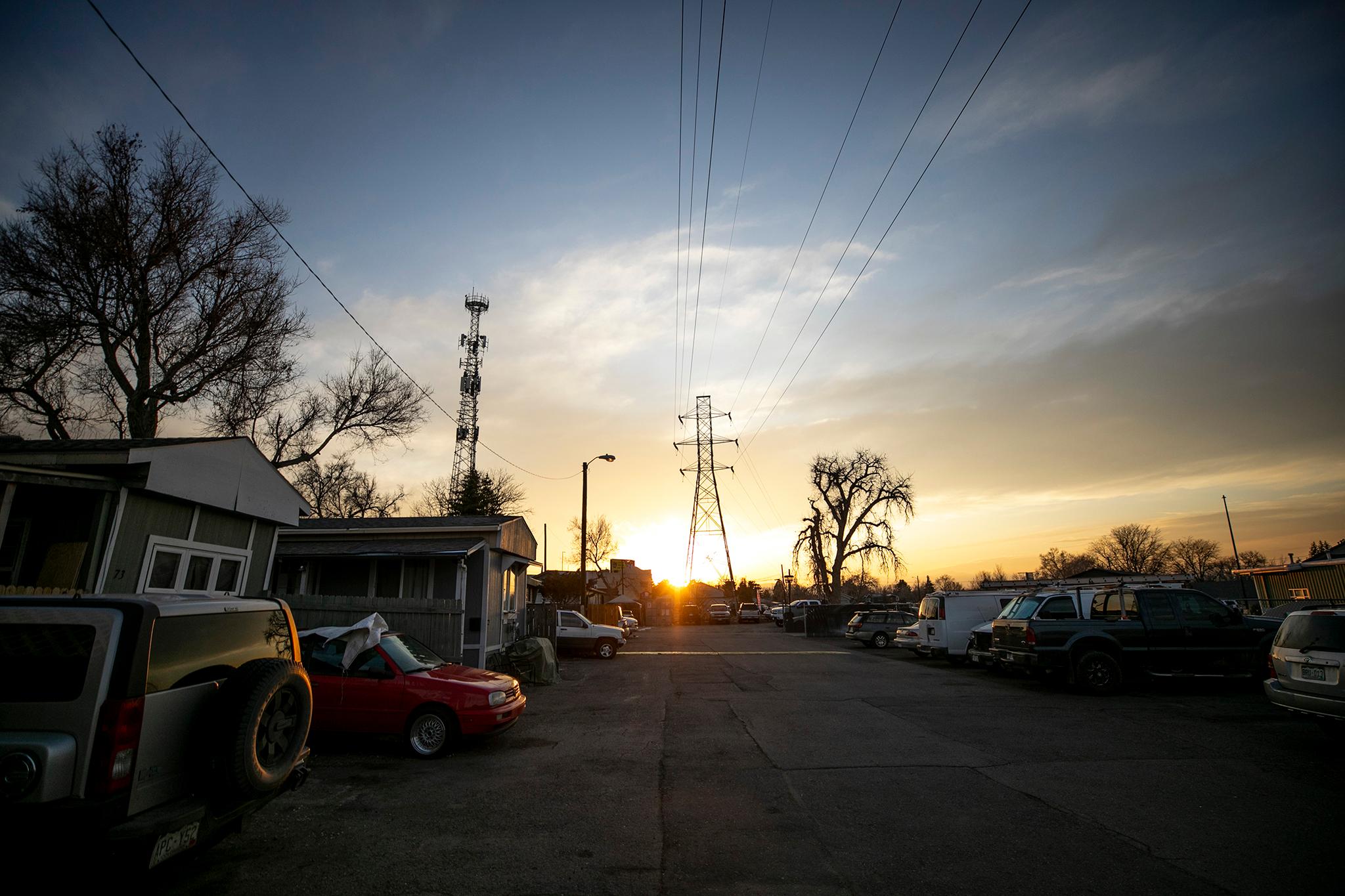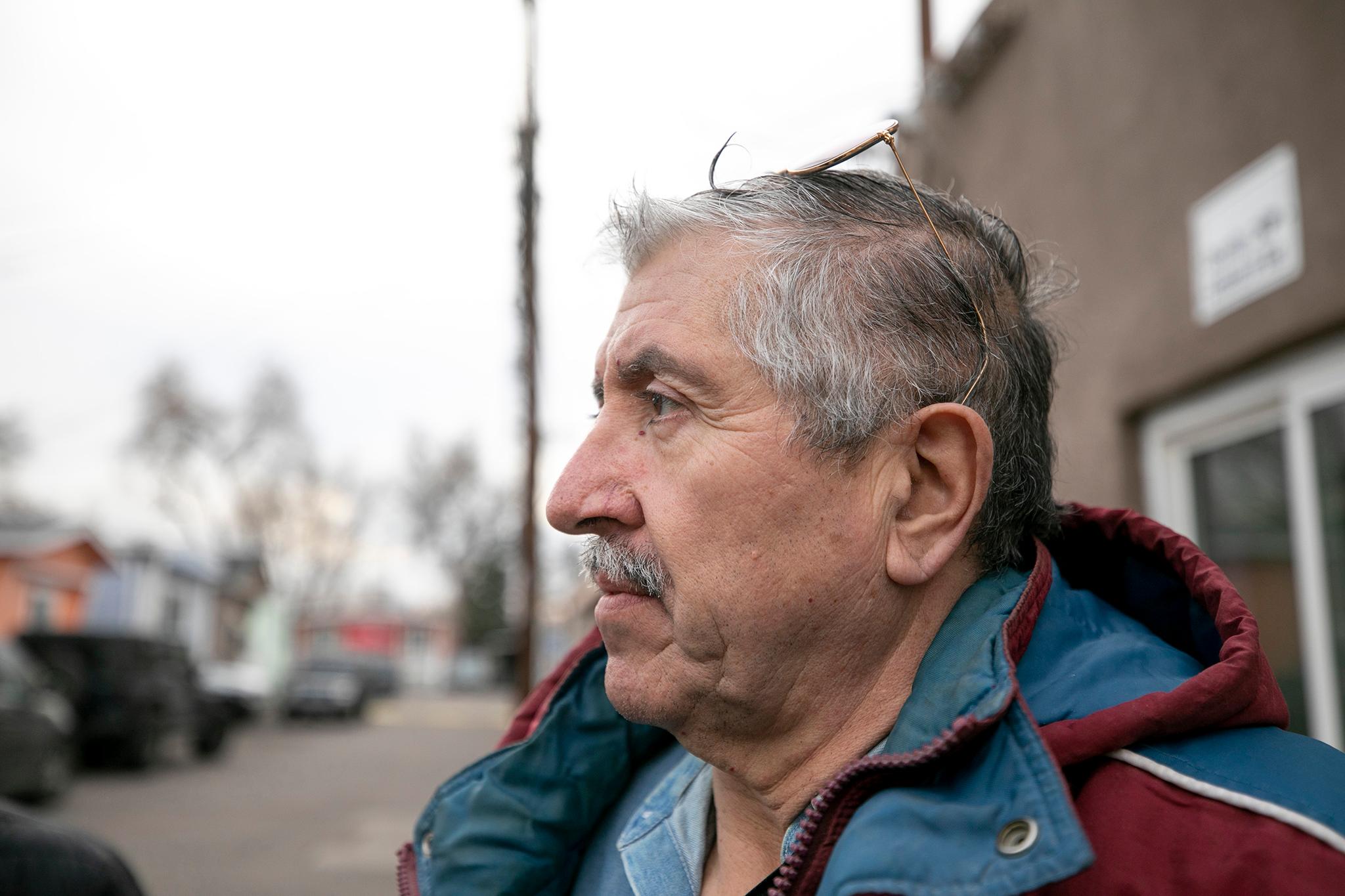When 95-year-old Josephine Sullivan first moved into Capitol City Mobile Home Park in Westwood in 1955, monthly rent was around $30, she recalls. Full of vacant lots, the park was a work in progress; Sullivan and her husband helped pour concrete and build out the area themselves. Over the decades they raised two kids in the park and watched the city grow up around them.
Today, monthly rent at the park costs $800, and it's going up to $850 in June. The days of empty lots and pouring concrete are gone. Sullivan now lives alone in that same unit she bought in the 1950s; her daughter, now in her 70s, lives in a unit nearby.
The Loya family lives next door. Sullivan watched their kids grow up, and now that she is not as mobile, they come over and make her dinner, vacuum the carpet and keep her company. Recently, the family threw Sullivan a birthday party.
"They're my people," Sullivan said. "They're my family."

But that's all subject to change. Last week, the park went up for sale for $11.5 million for the second time in a year. If the residents want to guarantee they can stay, they have 120 days from April 19, thanks to a state law passed last year, to raise money to put in an offer themselves before the owner can accept offers from other buyers.
It's a common story across the country. Parks go up for sale, and are bought by investors who often raise rent, or evict and redevelop. In 2017, mobile home residents in Aurora raised $20 million to purchase their park, but were pushed out anyway after the owner turned down the offer. In 2021, a similar story happened at a park in Fort Collins.
Residents of the Westwood park are hoping things turn out like they did for mobile home residents in Leadville, who successfully raised money, bought the park and formed a cooperative, keeping their homes and running things themselves.

But now, the clock is ticking.
The first time owner Chad Graves put the park up for sale in the summer of 2022, he let the state law-mandated deadline pass to give residents more time to try to raise money. They began organizing and working with the economic justice nonprofit 9to5, and nonprofits Thistle and ROC, which help mobile home residents secure investment funding and form cooperatives. They formed a board, chose leaders and voted to rename the park Montevista.
They also have the backing of City Council. In March, Council rolled back local laws meant to phase out mobile home parks, in order to make investments in a potential cooperative more viable. Getting the legislation right is tricky because changes that might help residents purchase their parks would also likely make them more attractive to predatory investors.
Council passed a moratorium on mobile home park redevelopment in November to buy residents time. It ends in April of 2024.
"We took a jump with the support of community, and are trying to just really maintain that confidence and trust that people are going to lose their housing, full stop," said Counclimember Jamie Torres, who represents Westwood and has been helping lead the legislation. "That will always be my biggest worry when they take something like this on. I've only got the one park [in District 3], there are four others in the city, and there's a lot at risk if we do this badly."
But even with nonprofit support, Council help and an owner open to selling to tenants, the effort has been an uphill battle.
The initial nonprofits working on securing investment funding pulled out, after the discovery that fire code regulations and overcrowding could lead to the park losing up to 40 homes in future years, making it a hard sell for investors.
Then, Graves put the park back up for sale. He's preparing to retire, and said he has already gotten an outside offer. Graves would not get into specifics and said he could not predict the future of the property once he sells, but said some interested groups own rental real estate, while others redevelop real estate.
Graves said he remains open to selling to residents if they could come up with the money, but unlike the first time on the market, he's set on selling this time around.
"It's a real timeline," Graves said. "If the tenants don't exercise the right to buy it, this group is going to buy it, so the tenants don't have time to waste."

Now, 9to5 is helping residents look into city funding and other potential sources.
9to5 Project Director of Legal Program Andrea Chiriboga-Flor said she was not surprised that the park went up for sale, but that she remains optimistic about residents' chances to purchase the park. She said it's possible residents could get up to $5 million from the city, plus the support of local and national nonprofits. With additional outside funding, it's also possible Thistle and ROC, the initial groups that pulled out, could come back to the table.
"It helped a lot to have the city be involved," Chiriboga-Flor said. "We're feeling pretty good about that so far."

With the for sale sign back up and interested buyers, time is of the essence. For residents, the stakes are high.
At the park in Westwood, kids walk to school and parents walk to work in an economic market increasingly determined to price out the most vulnerable. Many residents are immigrants and older people on fixed incomes. Some are undocumented and cannot access local and state resources to help low-income people with housing.
"It would be hard on a lot of people," Sullivan said. "Our rent has been going up too since we moved in here. Naturally, it goes up, but it's still, in a way, a little cheaper than an apartment or buying a home, and that's why I'm still here."
Jorge Loya, who lives next door to Sullivan and looks after her, said he worries about what she would do if they all had to move out. He has lived in the park for 20 years, and also has his own family to think about.
"What can I tell you? It is as if you are in your homes for so long and suddenly they say to you 'We want to get you out of here because we are going to build a bridge or something,'" he said in Spanish. "It's hard."

It's a sentiment felt across residents in the park. Armando Anguiano has lived there for 23 years, raising four kids in Westwood.
"Let's hope that we can make it happen here," he said in Spanish. "To live in an apartment or buy a house, it is triple what we are paying here and we can no longer afford that."

Eduardo Castañeda has taken the lead on organizing residents.
He has learned a lot about his community through the process; he said one of his neighbors has diabetes and is losing his vision, and Castañeda worries about what would happen to him if they all had to leave. Plus, Castañeda sees the park as a key part of the neighborhood.
"There are a lot of kids that depend on this area because they go to school nearby. A lot of families that have lived here, their kids that were born and raised in the neighborhood are now in the armed services, they have college careers," he said in Spanish. "This mobile home community has a very important history for the city of Denver."

In addition to Montevista, four other parks remain in Denver, all full of residents at risk if they too were to go up for sale. If Westwood residents are successful in purchasing their park, it would be the first of its kind in Denver, and a sign that cooperatives and more housing security could be possible across the city.
But a new landlord or redevelopment could mean the displacement of more than 70 families. It would mean the continuation of the status quo for communities at risk of displacement in Denver. To Castañeda, the forces at play are clear.
"We are very concerned about the situation," he said. "We know that we are in a situation where the rich are richer under the stipulation that we have less."
Editor's note: This article has been updated with Andrea Chiriboga-Flor's new title at 9to5.
Denverite reporter Isaac Vargas contributed translation reporting on this story.












